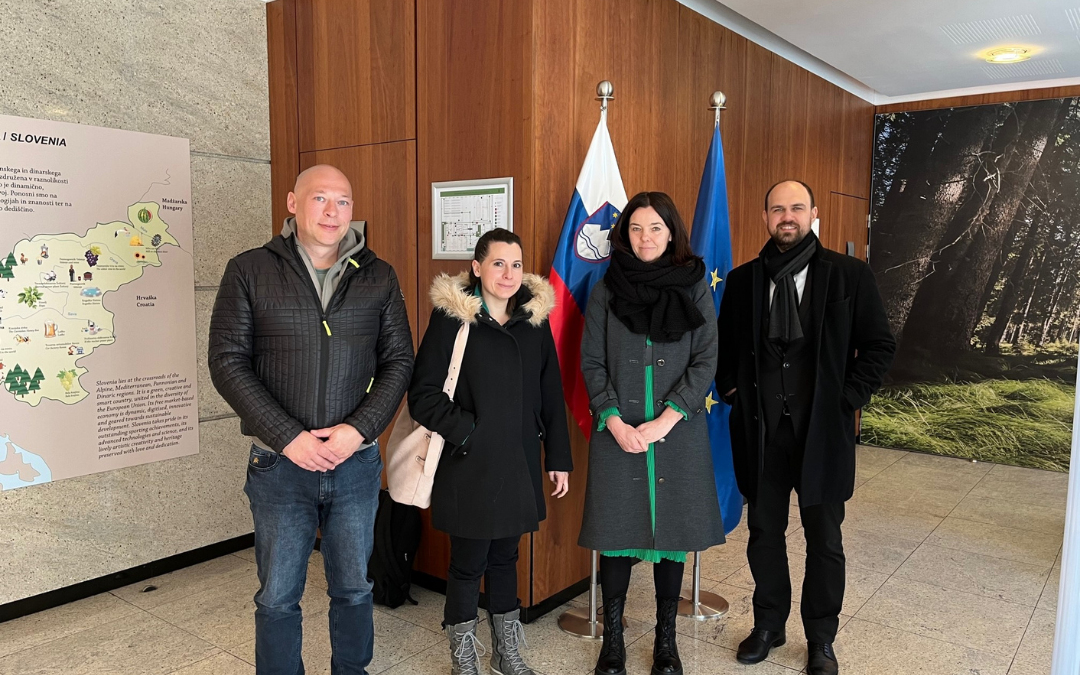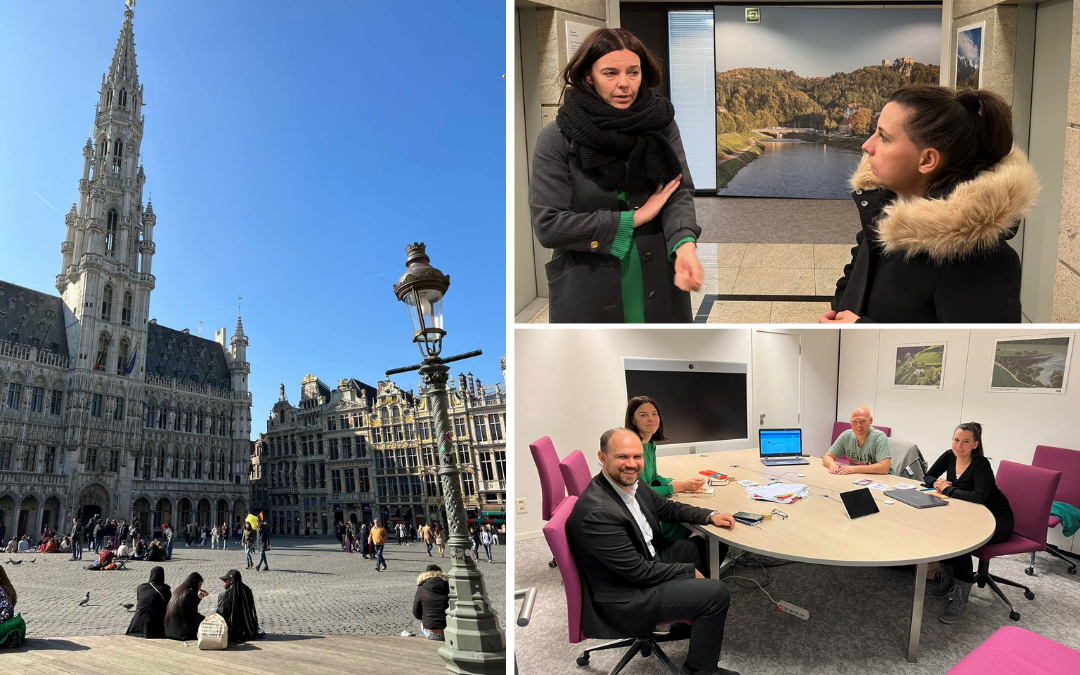Through staff mobility projects, we improve good practices and approaches to non-formal education of adult members of ethnic minorities
Through staff mobility projects, the Institute Burja pursues its internationalisation strategy, strengthens the international network of partner organisations and introduces new knowledge into its work processes. Furthermore, we exchange good practices and relevant information, give joint initiatives and care for mutual learning and new projects. In this way, we contribute to a more significant role of minority organisations in non-formal adult education and greater added value to their end users, immigrants from the nations of the former Yugoslavia living in Slovenia.
With each working visit, we make a long-term impact on important key areas. We strengthen the potential and motivation of adult members of minorities to participate in non-formal education, provide them with learning opportunities and promote awareness-raising, information and social inclusion activities. We improve the institutional capacity of our organisation and, at the same time, develop international and regional partnerships.
We have been successfully implementing staff mobility projects under the Erasmus+ programme for several years. We carried out all our mobility in person, even during the restrictions due to the COVID-19 pandemic. Recently, we also obtained Erasmus accreditation for the programme in the field of adult education.
Under the current project, Other Perspectives of Knowledge, we have already carried out learning mobility with partner organisations: the Municipality of Ludbreg, Umag AEC (Croatia) and the NGO Innovative Network in Subotica (Serbia).
To end the project, we visited the Permanent Representation of the Republic of Slovenia to the EU in Brussels between 9 and 11 March. We were welcomed by Luka Živić and Barbara Zupan, counsellors for Education, Youth and Sport, and Sašo Gazdić, counsellor for Culture and Audiovisual Affairs.
We conducted a series of individual and group discussions on analysing the situation and implementing new policies in adult education, both in general and in the field of culture. We were mainly interested in recent trends that pursue the strategy of adult education until 2030. In addition, we wanted to highlight the new Resolution on NEAAL, which was adopted last autumn during the Slovenian Presidency of the Council of the EU.
We are pleased that the European agenda continues to pursue priority challenges based on more blended learning and on developing (and limiting) digital learning. More inclusive and more socially just learning is particularly important to us.
Among the topics we have discussed, we would like to highlight those in which we recognise the additional potential for strengthening the priorities of pursuing a common strategy. The latter is about establishing a joint European approach to creating a system of micro-credentials or a record of the learning outcomes that a learner has acquired following a small volume of learning. Another topic is the various incentives for including our members in adult education programmes. A possible solution is also the introduction of personal learning accounts and vouchers. In this way, the state would systematically encourage the inclusion of adults in various educational programmes. A similar system was introduced in Croatia some time ago.
We believe that a good and consistent policy of introducing these tools would help our immigrants to choose, with a more motivated approach, those educational contents which will enable them to be more socially included. As a result, they would become more competitive in the labour market, which would be an essential step towards better integration into the majority society.
Damir Hauptman (damir.hauptman@gmail.com), Institute Burja


